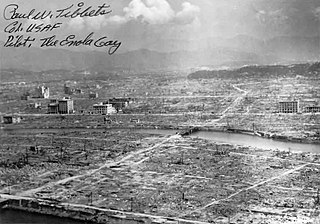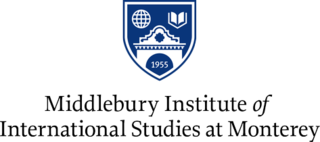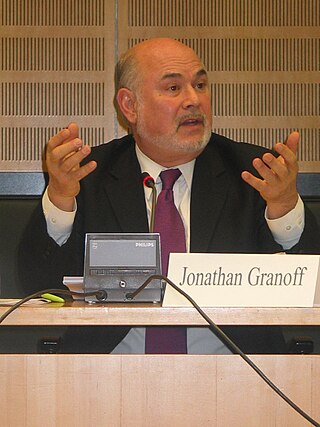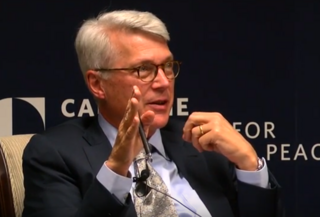Career
Her broad knowledge of nuclear issues related to her vast working experience led her, after her graduation, to work as a scientist at the CNEA (National Atomic Energy Commission of Argentina) for the LPR (Laboratory of Radio-chemical Processes Project). This included the design of an Argentine reprocessing plant located in Ezeiza, outside Buenos Aires City.
In the private sector, she has held managerial positions in multinational companies such as the Latin American Petrochemical Association and ExxonMobil Corporation, where she focused on strategic planning, business analysis, communications, and human resources.
In addition to her activities in NPSGLOBAL (An institution where she is the Chief of the postgraduate course in international security, disarmament, and Non-proliferation), she is the Head of the Secretariat of the Latin American and Caribbean Leadership Network for Nuclear Disarmament and Nonproliferation, an organization which congregates prominent high-level former state-persons and leaders in the region in order to influence the definition of state policies to propose measures to reduce global/regional nuclear risks.
Membership
She is a member of the Steering Committee of the International Nuclear Security Forum (former Fissile Materials Working Group), a non-governmental coalition of over 70 organizations from around the world that are committed to improving fissile material security and the prevention of nuclear terrorism.
Since 2010, she organized and participated as a speaker at all official no-governmental events that were held as part of the Nuclear Security Summits that congregated more than 50 heads of state: In 2010, Washington: 2012, Seoul; 2014, The Nertherlands and 2016, Washington.
She is also a member of the Nuclear Security Governance Expert Group - integrated by globally diverse experts devoted to propose improvements in the global nuclear security regime.
Among other affiliations, she was an Associate Fellow at Chatham House, a world-famous think tank in London, where she is involved in nuclear disarmament and cyber security projects. She also forms part of the Consultative Committee of the PIR Center International Expert Group.
She participated in the World Economic Forum's Council on Nuclear Security from 2014 to 2016. The Forum sought to better understand and catalyze global, regional, and industry transformation.
Arguello is usually appointed to speak before different audiences. She has written many articles, papers, and Op-Eds relating to her fields of expertise and is usually called to speak at international events and communication media.

The Treaty on the Non-Proliferation of Nuclear Weapons, commonly known as the Non-Proliferation Treaty or NPT, is an international treaty whose objective is to prevent the spread of nuclear weapons and weapons technology, to promote cooperation in the peaceful uses of nuclear energy, and to further the goal of achieving nuclear disarmament and general and complete disarmament. Between 1965 and 1968, the treaty was negotiated by the Eighteen Nation Committee on Disarmament, a United Nations-sponsored organization based in Geneva, Switzerland.

Nuclear disarmament is the act of reducing or eliminating nuclear weapons. Its end state can also be a nuclear-weapons-free world, in which nuclear weapons are completely eliminated. The term denuclearization is also used to describe the process leading to complete nuclear disarmament.
Arms control is a term for international restrictions upon the development, production, stockpiling, proliferation and usage of small arms, conventional weapons, and weapons of mass destruction. Historically, arms control may apply to melee weapons before the invention of firearm. Arms control is typically exercised through the use of diplomacy which seeks to impose such limitations upon consenting participants through international treaties and agreements, although it may also comprise efforts by a nation or group of nations to enforce limitations upon a non-consenting country.

Samuel Augustus Nunn Jr. is an American politician who served as a United States Senator from Georgia (1972–1997) as a member of the Democratic Party.

The Conference on Disarmament (CD) is a multilateral disarmament forum established by the international community to negotiate arms control and disarmament agreements based at the Palais des Nations in Geneva. The Conference meets annually in three separate sessions in Geneva.
William C. Potter is Sam Nunn and Richard Lugar Professor of Nonproliferation Studies and Founding Director of the James Martin Center for Nonproliferation Studies at the Middlebury Institute of International Studies at Monterey (MIIS). He also directs the MIIS Center for Russian and Eurasian Studies.

As the collapse of the Soviet Union appeared imminent, the United States and their NATO allies grew concerned of the risk of nuclear weapons held in the Soviet republics falling into enemy hands. The Cooperative Threat Reduction (CTR) program was initiated by the Nunn–Lugar Act, which was authored and cosponsored by Sens. Sam Nunn (D-GA) and Richard Lugar (R-IN). The purpose of the CTR Program was originally "to secure and dismantle weapons of mass destruction and their associated infrastructure in former Soviet Union states." As the peace dividend grew old, an alternative 2009 explanation of the program was "to secure and dismantle weapons of mass destruction in states of the former Soviet Union and beyond". The CTR program funds have been disbursed since 1997 by the Defense Threat Reduction Agency (DTRA).

The nuclear weapons debate refers to the controversies surrounding the threat, use and stockpiling of nuclear weapons. Even before the first nuclear weapons had been developed, scientists involved with the Manhattan Project were divided over the use of the weapon. The only time nuclear weapons have been used in warfare was during the final stages of World War II when USAAF B-29 Superfortress bombers dropped atomic bombs on the Japanese cities of Hiroshima and Nagasaki in early August 1945. The role of the bombings in Japan's surrender and the U.S.'s ethical justification for them have been the subject of scholarly and popular debate for decades.

The Middlebury Institute of International Studies at Monterey (MIIS), formerly the Monterey Institute of International Studies, is a graduate institute of Middlebury College, a private college in Middlebury, Vermont. Established in 1955, the school provides instruction on a campus in Monterey, California. The institute offers master's programs and certificates in environmental policy, international policy, language teaching, and translation and interpretation. It is host to several related centers.

Patricia Lewis is a British and Irish nuclear physicist and arms control expert, who is currently the Research Director for International Security at Chatham House. She was previously the Senior Scientist-in-Residence and Deputy Director at the James Martin Center for Nonproliferation Studies at Monterey Institute of International Studies (MIIS). She was previously the Director of the United Nations Institute for Disarmament Research (UNIDIR) and the Director of VERTIC.

Jonathan Granoff is an American lawyer, screenwriter and lecturer, widely known as President of the Global Security Institute.

Scott Douglas Sagan is the Caroline S.G. Munro Professor of Political Science at Stanford University and co-director of Stanford's Center for International Security and Cooperation (CISAC). He is known for his research on nuclear weapons policy and nuclear disarmament, including discussions of system accidents, and has published widely on these subjects.
Frank N. von Hippel is an American physicist. He is Professor and Co-Director of Program on Science and Global Security at Princeton University and the Princeton School of Public and International Affairs.
The International Conference on Nuclear Disarmament took place in Oslo on 26 and 27 February 2008. It was organized by The Government of Norway, the Norwegian Radiation Protection Authority in collaboration with the NTI and the Hoover Institute. The Conference, entitled "Achieving the Vision of a World Free of Nuclear Weapons", had the purpose of building consensus between nuclear weapon states and non-nuclear weapon states and about the importance of all the actions in the NPT.

Yukiya Amano was a Japanese diplomat, who served as the Director-general of the International Atomic Energy Agency (IAEA) from 1 December 2009 until his death on 18 July 2019. Previously, Amano served as an international civil servant for the United Nations and its subdivisions.
The Global Initiative to Combat Nuclear Terrorism (GICNT) is an international organization consisting of 89 countries that have endorsed a set of nuclear security principles for nuclear terrorism deterrence, prevention, detection, and response. It is co-chaired by the United States and Russia. The organization aims to develop partnership capacity to combat nuclear terrorism, consistent with national legal authorities and obligations as well as relevant international legal frameworks such as the Convention for the Suppression of Acts of Nuclear Terrorism, the Convention on the Physical Protection of Nuclear Material, and United Nations Security Council Resolutions 1373 and 1540.
The International Luxembourg Forum on Preventing Nuclear Catastrophe — is an international non-governmental organisation uniting leading world-renowned experts on non-proliferation of nuclear weapons, materials and delivery vehicles.
The 2010 Review Conference for the Treaty on the Non-Proliferation of Nuclear Weapons (NPT) was held at United Nations Headquarters in New York City from 3 to 28 May 2010. The President of the Review Conference is Ambassador Libran N. Cabactulan of the Philippines. UN Secretary-General Ban Ki-moon used the opening of the conference to note that "sixty five years later, the world still lives under the nuclear shadow".
The Top Level Group of UK Parliamentarians for Multilateral Nuclear Disarmament and Non-proliferation (TLG) is a cross-party parliamentary group in the United Kingdom, whose primary focus is the advancement of the nuclear disarmament and non-proliferation agenda in Britain and internationally. It is formed of almost all the former senior Ministers of foreign affairs and defence over the last two decades and includes former Chiefs of Defence and two former NATO Secretaries General.

Alexei Georgievich Arbatov is a full member of the Russian Academy of Sciences, the Head of the Center for International Security at the Institute of World Economy and International Relations (IMEMO), and a scholar in residence at the Carnegie Moscow Center. He is a Russian political scientist, academic, author, and former politician.











